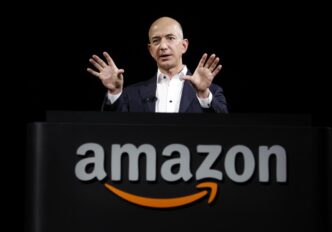In less than a year, Model Context Protocol (MCP) has gone from an experimental release to the de facto communication protocol powering the agentic AI revolution. Introduced by Anthropic in November 2024, MCP isn’t technically a standard—yet that hasn’t stopped a wave of tech giants from adopting it at record speed.
Companies like OpenAI, AWS, MongoDB, Cloudflare, Wix, and PayPal are already spinning up MCP servers or integrating the protocol into their systems. The reason? They believe it’s time to build the foundation for a future where AI agents from different platforms can actually talk to each other.
MCP wasn’t the first interoperability protocol to surface, but it’s quickly becoming the most widely accepted. It solves one of the most pressing problems in enterprise AI: letting agents built on different LLMs or frameworks work together. Competing options like Google’s Agent2Agent (A2A), Cisco’s AGNTCY, and LOKA’s research-backed protocols all aim for the same goal—but MCP is pulling ahead.
According to Jeff Wang, cofounder of Exa, the moment for interoperability has finally arrived because AI agents are now powerful and useful enough to make these standards worth building. It’s like the early days of mobile networks or the internet—only now, it’s LLMs trying to “call” one another.
From APIs to MCP: A Paradigm Shift in AI Communication
APIs used to be the go-to method for connecting models to external data and tools. But APIs, while powerful, are rigid. They weren’t designed for dynamic agents that need to fetch data and complete tasks on their own.
MCP changes that.
Ben Flast, director of product at MongoDB, says MCP gives organizations fine-grained control over what agents can access. It’s more than just a data pipe—it’s a permission-aware interface. Companies can customize MCP servers to specify exactly what agents are allowed to do, request an agent’s identity, and determine whether to grant access to certain data.
It’s not just about control. Sagar Batchu, CEO of Speakeasy AI, points out that MCP eliminates the need to constantly update or rewrite APIs. It transforms the whole API layer into something more conversational and adaptable, acting more like a chat interface than a set of endpoints. The result? Faster integration, easier maintenance, and less developer overhead.
MCP Momentum Is Growing Fast
AI announcements today typically fall into one of three categories: a new model release, the launch of an agent or agent framework, and now, MCP integration. This third category is expanding rapidly. Companies aren’t just building with LLMs anymore—they’re building ecosystems where agents can collaborate.
At Wix, CTO Yaniv Even Haim says MCP aligns perfectly with their LLM-powered workflows. Their MCP server allows developers and users to interact with Wix tools via Claude, Cursor, or Windsurf directly from their IDEs or chats. This kind of seamless integration is exactly what many companies are aiming for.
Even major industry voices are backing MCP publicly. Microsoft CEO Satya Nadella recently said that open protocols like MCP and A2A are “key to enabling the agentic web.” Google’s Sundar Pichai echoed the sentiment.
Still, not every company is rushing in. Some, like Rocket Companies, are taking a wait-and-see approach—experimenting internally with MCP but holding off full adoption until the protocol reaches a larger critical mass. CTO Shawn Malotra says they’re watching the space closely, and expect MCP-based tools to eventually go into production.
Multiple Protocols May Coexist—For Now
While MCP is leading the charge, it’s unlikely to be the only standard. Companies like Confluent and Merge see MCP as essential—but acknowledge that customers might prefer alternatives like A2A or AGNTCY. For now, many businesses are preparing to support multiple protocols depending on client needs.
Walter Sun, global head of Business AI at SAP, emphasizes that interoperability can happen at multiple layers—from low-level tools to high-level agent conversations. MCP, by offering top-layer integration, is carving out a unique niche.
One thing is certain: enterprises are no longer asking if interoperability will happen. They’re asking when and how. The growing adoption of MCP is proof that the industry wants standards—and is ready to build around them.













